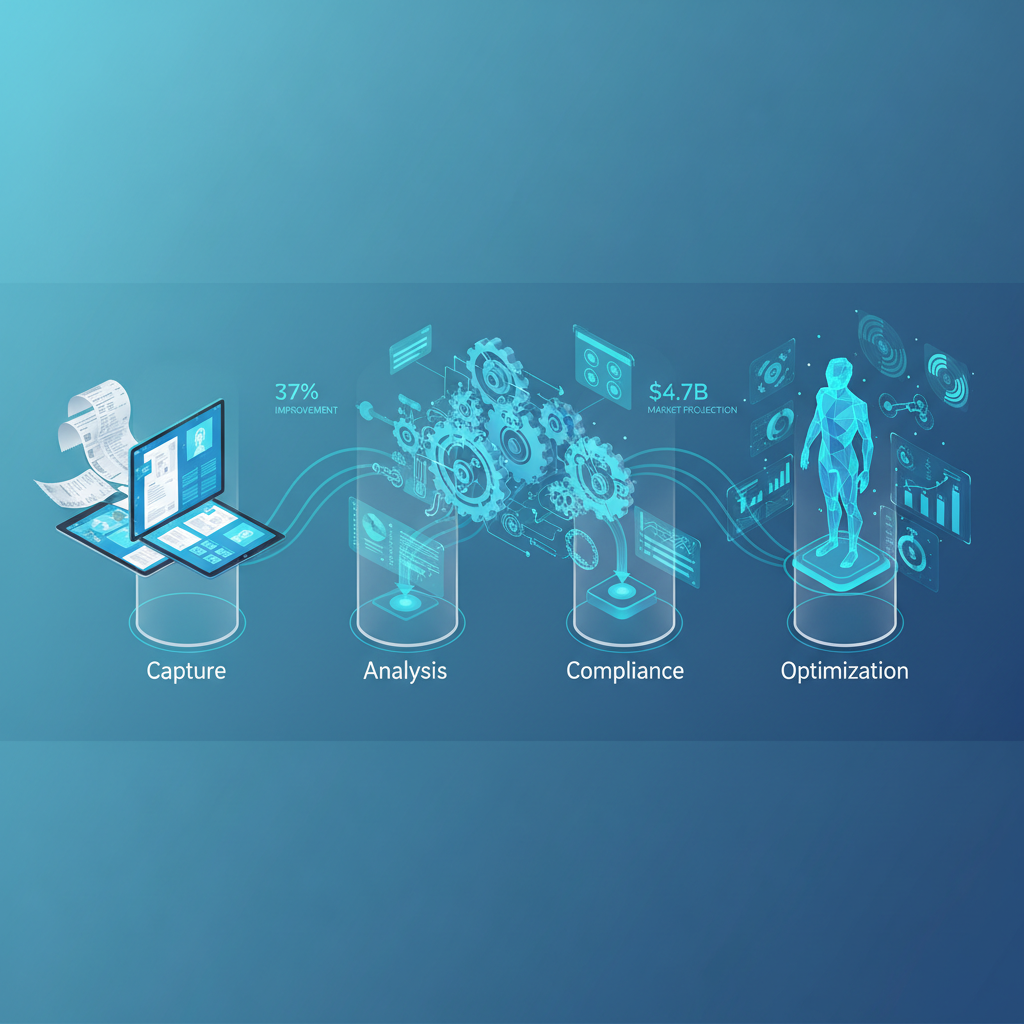
Frameworks, core principles and top case studies for SaaS pricing, learnt and refined over 28+ years of SaaS-monetization experience.
Thank you! Your submission has been received!
Oops! Something went wrong while submitting the form.
Join companies like Zoom, DocuSign, and Twilio using our systematic pricing approach to increase revenue by 12-40% year-over-year.

In the fast-paced world of business, managing expenses efficiently can make the difference between thriving and merely surviving. Traditional expense management processes are often manual, error-prone, and time-consuming—leaving finance teams drowning in receipts and spreadsheets rather than focusing on strategic initiatives. Enter expense management AI and cost intelligence systems—technologies that are revolutionizing how businesses track, analyze, and optimize their spending.
Expense management has traveled a long path from paper receipts and manual spreadsheets to today's sophisticated digital solutions. Let's trace this evolution:
First Wave: Digitization - The initial shift from paper to digital records and basic expense reporting software.
Second Wave: Automation - The introduction of rule-based systems that could automatically categorize expenses and flag policy violations.
Third Wave: Intelligence - Today's AI-powered systems that not only automate processes but actively learn, predict, and recommend cost-saving opportunities.
According to Gartner, organizations implementing AI-powered expense management solutions report a 60% reduction in processing time and a 27% decrease in expense processing costs. This significant improvement illustrates why the market for expense automation technology is projected to reach $4.7 billion by 2026, according to Allied Market Research.
Agentic AI represents the newest frontier in expense management—systems that don't just passively process data but actively work as "agents" on behalf of your finance team. Here's what sets them apart:
Unlike traditional expense management software that requires human intervention for exceptions or approvals, agentic AI systems can:
Today's cost intelligence systems provide real-time visibility into spending patterns:
A study by Aberdeen Group found that companies using AI-powered financial tracking tools experienced a 37% improvement in policy compliance and reduced expense report processing costs by 26% compared to those using traditional methods.
Modern expense management AI frameworks typically operate across four key domains:
AI dramatically simplifies the data gathering process:
This is where cost intelligence truly shines:
According to a McKinsey report, companies leveraging advanced analytics for expense management report finding 5-15% in previously unidentified cost-saving opportunities.
AI systems excel at enforcing policies:
The most sophisticated systems move beyond reporting to recommendation:
A Fortune 500 pharmaceutical company implemented an agentic AI expense management system across their operations in 40+ countries. The results after 18 months included:
The system's continuous learning capabilities meant that it became more effective over time, adapting to new spending patterns and regulatory requirements without requiring manual updates.
When evaluating cost intelligence systems, consider these key factors:
The system should seamlessly connect with:
Even the most powerful AI becomes ineffective if people won't use it:
Your business is unique, and your expense management system should adapt to your needs:
To evaluate the effectiveness of your expense automation implementation, track these key performance indicators:
According to the Association of Finance Professionals, companies with advanced expense management systems see an average ROI of 353% over three years, with payback periods typically under 6 months.
As agentic AI systems continue to evolve, we can expect several exciting developments:
Future systems will not just report on past expenses but actively forecast future spending needs with remarkable accuracy, helping organizations plan more effectively.
As environmental considerations become more important, expense management systems will automatically track the carbon footprint associated with business activities and suggest greener alternatives.
The next generation of expense management platforms will facilitate anonymous, aggregate benchmarking across companies, giving organizations unprecedented insight into how their spending compares to peers.
Cost intelligence systems powered by agentic AI represent far more than just an operational improvement—they're a strategic advantage in a competitive business landscape. By transforming expense management from a backward-looking administrative function to a forward-looking strategic tool, these systems free finance teams to focus on value-creating activities while simultaneously reducing costs and improving compliance.
The question for most organizations is no longer whether to implement AI-powered expense management, but how quickly they can do so before competitors gain the advantages these systems offer.
For finance leaders and executives, embracing this technology now means positioning their organizations at the forefront of financial operations excellence, with all the competitive advantages that entails.

Join companies like Zoom, DocuSign, and Twilio using our systematic pricing approach to increase revenue by 12-40% year-over-year.